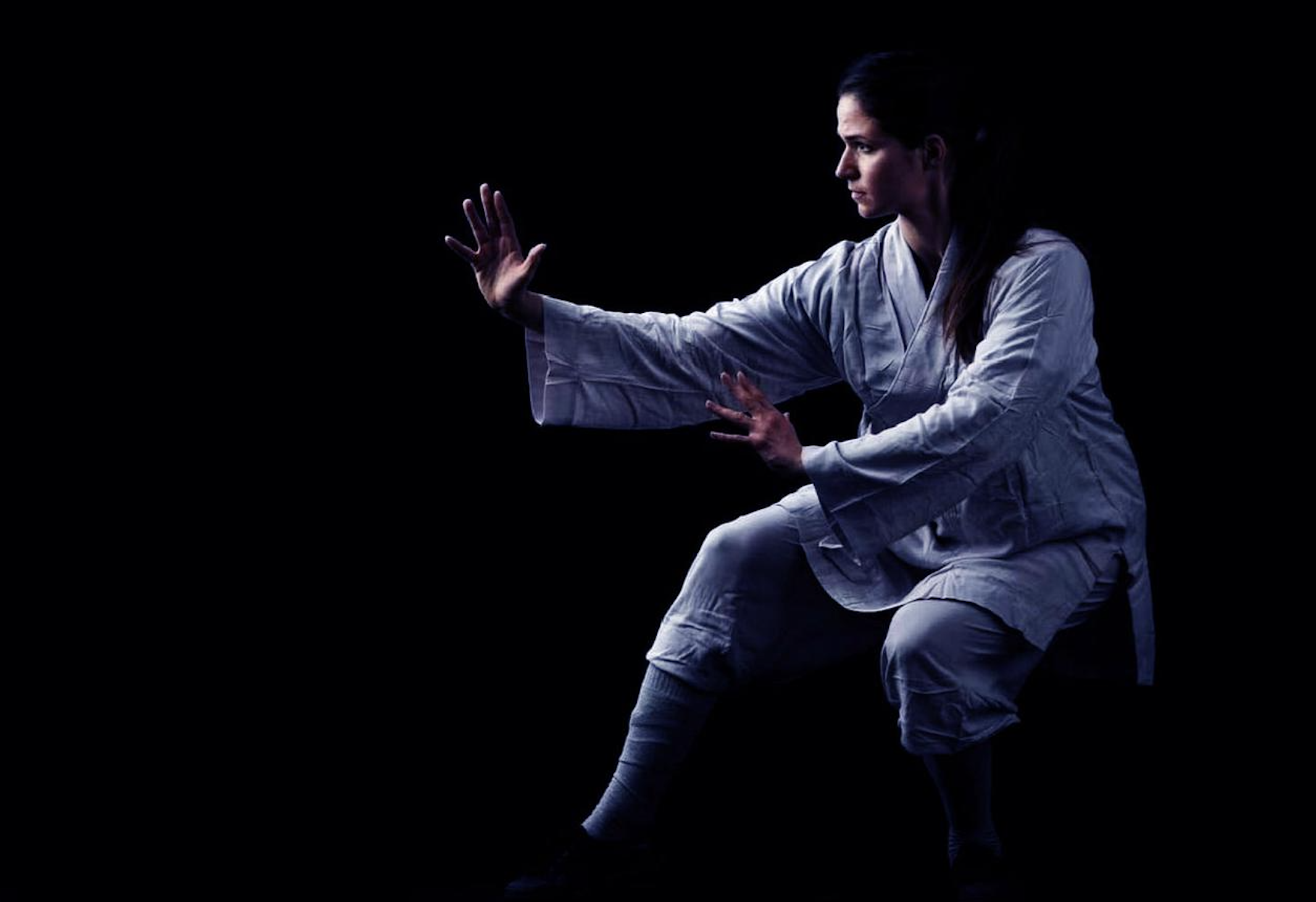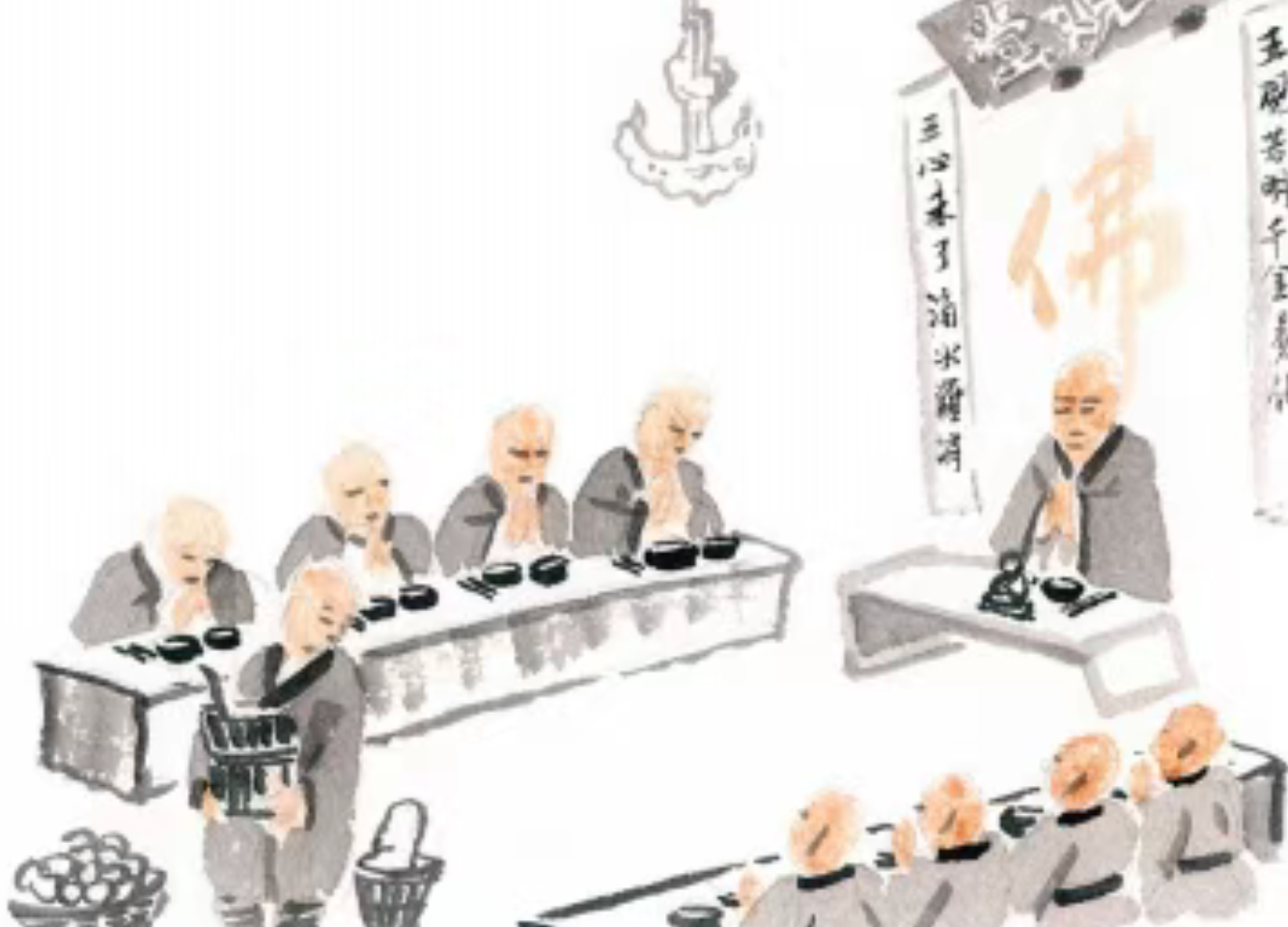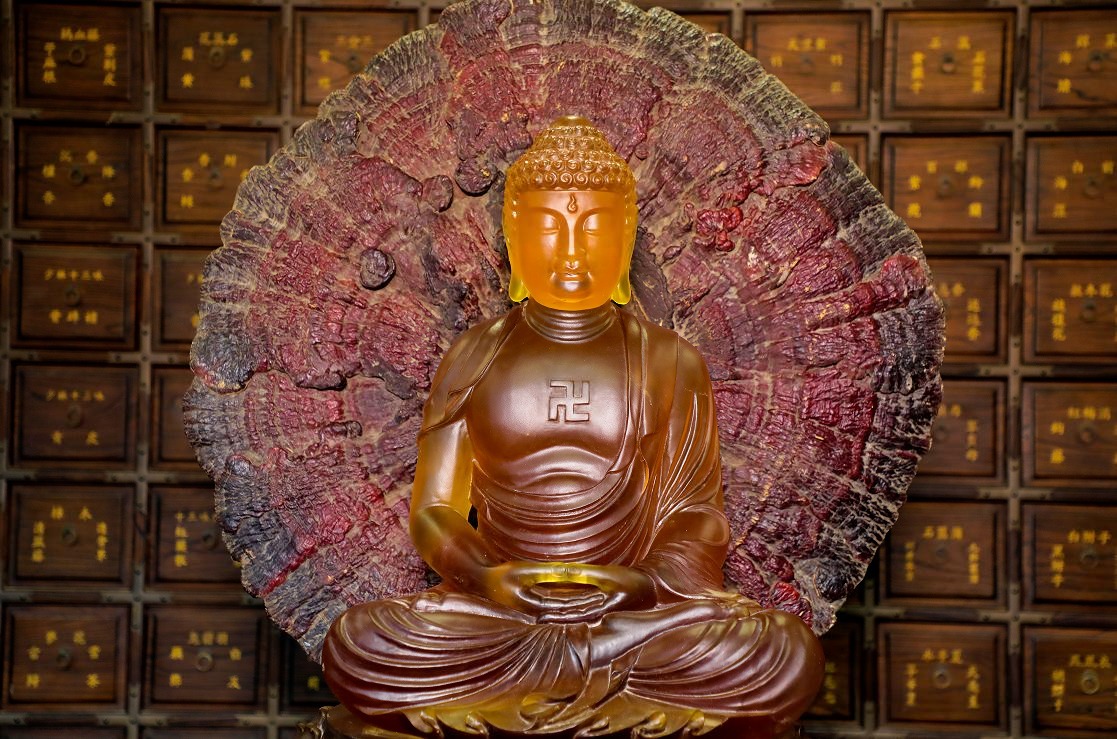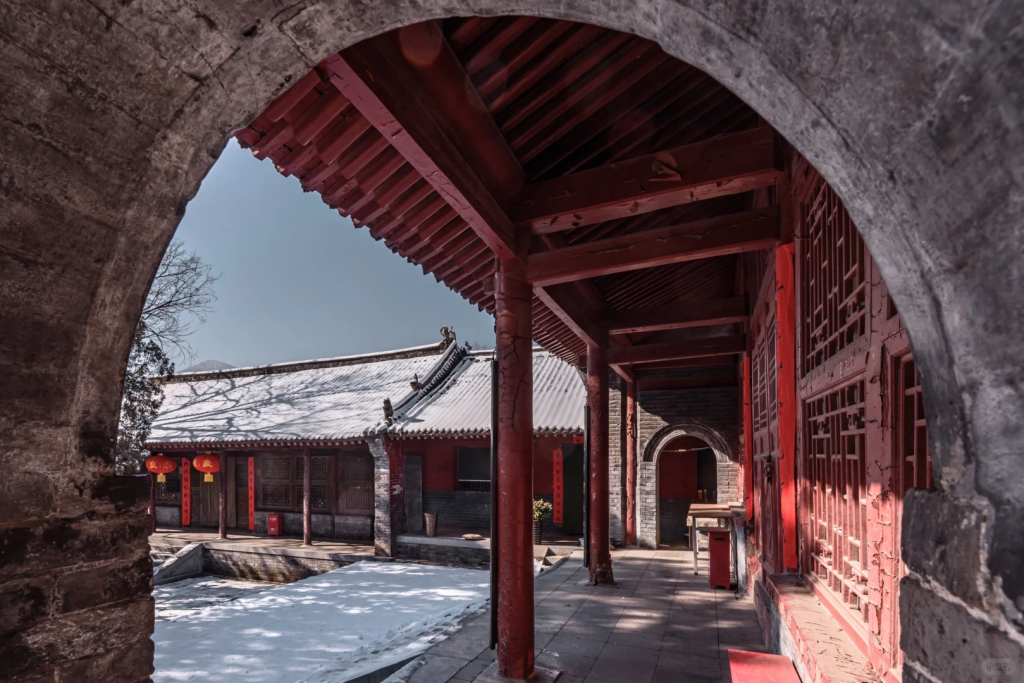
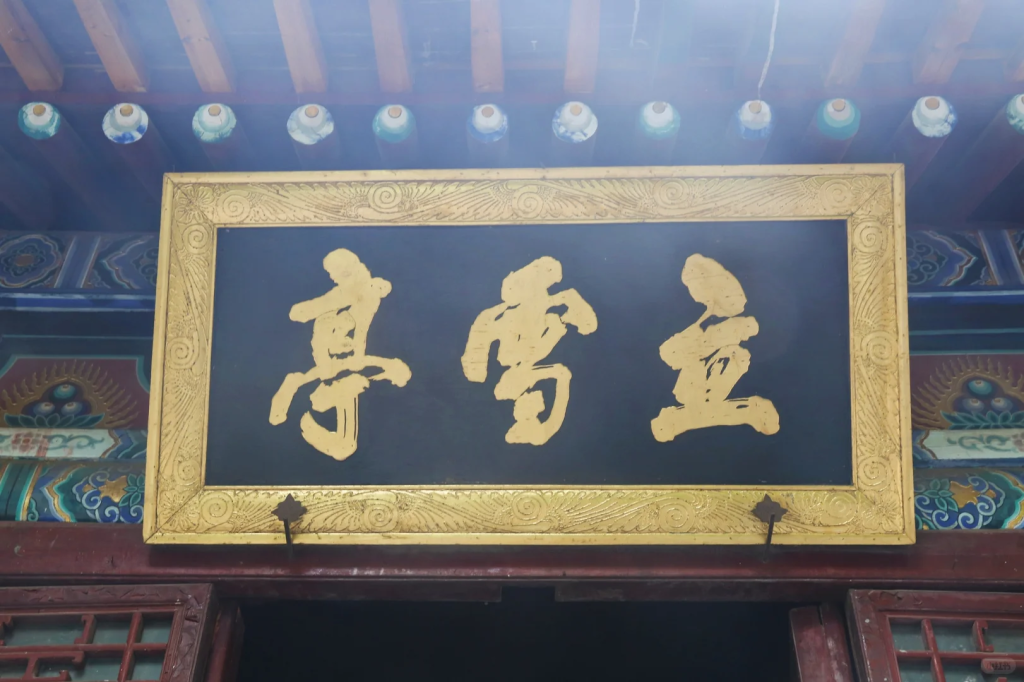
Legend has it that during the reign of Emperor Xiaoming of the Northern Wei dynasty, there lived a man named Ji Shenguang at the foot of Hulao Pass. His parents were devout followers of Zhenwu the Great, a deity in Taoism. When Shenguang was born, a mysterious blue light filled the room, and so his parents named him “Shenguang,” meaning “Divine Light,” symbolizing the descent of a heavenly spirit and the illumination of the earth.
As Shenguang grew up, he naturally followed his parents’ footsteps and embraced Taoism. Later, he heard of an old monk who had come from the Western Regions and was teaching the Buddhist Dharma at Shaolin Temple, nestled beneath the Five Breast Peaks of Mount Song. Gradually, Shenguang realized that Buddhism resonated with him more than Taoism. Determined to leave Taoism behind, he shaved his head, discarded his Taoist robes, and donned the robes of a monk.
Many people mocked him behind his back, saying, “Yesterday he worshipped Tao, today he bows to Buddha—so fickle and inconsistent, he’ll never amount to anything.” Yet these sneers only strengthened Shenguang’s resolve to abandon Taoism and devote himself to Buddhism. He sold off his land and family possessions, left his hometown, and made his way to Shaolin Temple to begin a new life.
When Shenguang arrived at Shaolin Temple, he learned that Master Bodhidharma was currently meditating in a cave on Yuru Peak, facing the wall and transmitting the Dharma in silence. Shenguang went to the cave to pay his respects and said, “Master, although I once followed the Taoist path, that was before you arrived. Since you came to Mount Song, I’ve gradually realized that Buddhism is superior to Taoism. That’s why I chose to abandon Taoism and follow the Buddha. I humbly ask you to accept me as your disciple!”
At the time, Bodhidharma was deep in meditation, facing the wall, and he did not so much as glance at Shenguang or utter a single word. A whole day and night passed without a response, but Shenguang remained standing, unmoving.
Finally, after a long while, Bodhidharma asked, “To venerate the Buddha and practice Zen, one must be like a wall—body still, heart free from worldly thoughts. Can you do that?”
Shenguang quickly replied, “Master, I can and will do my best.”
Bodhidharma said, “Then stay here for now. We’ll see in time.”
From that moment on, Shenguang became a junior monk at Shaolin Temple.
Master Bodhidharma’s method of transmitting the Dharma was unlike that of other monks—his core practice was silent meditation, facing a wall in deep contemplation. Whatever Bodhidharma did, Shenguang earnestly followed. Time passed unnoticed, and before long, 2,800 days had gone by. During this period, many disciples gave up and left, unable to endure the harsh discipline. Only Shenguang remained, eyes half-closed, hands clasped in prayer, standing faithfully behind Bodhidharma without wavering.
Over the years, Bodhidharma had come to understand Shenguang’s conduct and sincerity, but because Shenguang had once been a Taoist, Bodhidharma remained cautious and did not grant him a formal Dharma name. Bodhidharma continued his nine-year meditation in the cave, and after attaining enlightenment, he finally returned to Shaolin Temple. Shenguang followed him down the mountain and back to the temple.
While Bodhidharma sat in meditation in the Buddha Hall, Shenguang continued to stand silently outside, serving him without complaint. One day, Shenguang asked, “Master, when will I truly be accepted as your disciple?”
Bodhidharma casually replied, “When red snow falls from the sky, that is when I will accept you as my Dharma heir.”
Shenguang pondered these words for many days. He understood that Bodhidharma still harbored doubts about him. After much reflection, he conceived a bold and painful plan: to offer proof of his resolve by staining the snow with his own blood—through the sacrifice of his arm.
One day in the twelfth lunar month, heavy snow began falling at dawn—thick as goose feathers—accompanied by a bitter northeast wind that cut to the bone. The cold was so intense that even dripping water froze instantly. As usual, Master Bodhidharma was seated in meditation inside the Buddha Hall, while Shenguang stood outside, motionless, enduring the freezing winds and snow.
As time passed, the accumulating snow gradually buried his knees. Realizing that the moment had come, Shenguang drew the ceremonial knife he carried with him. With grim resolve, he brought it down upon his left arm. A sharp crack rang out—“ka-cha”—and his blood-soaked arm fell into the snow.
Even after severing his arm, Shenguang remained silent, standing unmoved in the same spot. Blood from the wound flowed steadily, staining the pure white snow a vivid red.
When Bodhidharma finished his meditation and stepped out of the Buddha Hall, he was shocked to see that Shenguang had severed his left arm and was still standing silently in the snow. The white ground around him was dyed red with blood. Alarmed, Bodhidharma quickly helped him into the hall.
To Bodhidharma’s surprise, Shenguang was calm and even cheerful, as if nothing had happened. Bodhidharma asked, “Shenguang, who cut off your left arm?”
Shenguang replied, “Master, I did it myself.”
“Why would you do such a thing?”
“I used to follow the heterodox path of Taoism. By cutting off my left arm, I’m showing my complete break with that past.”
Deeply moved, Bodhidharma asked, “You cut off your own arm—didn’t it hurt?”
Shenguang answered, “Master, I have given my whole heart to the Buddha. I’ve let go of worldly thoughts. To sever the arm of my worldly self—what pain could there be?”
At that moment, a young monk nearby asked, “Senior Brother, isn’t it enough to be sincere in one’s heart when reciting the Buddha’s name? Why put yourself through such suffering?”
Shenguang glanced at Bodhidharma, then turned to the young monk and said, “Junior Brother, go outside and tell me—what color is my blood?”
Puzzled, the young monk went out to look and came back, saying, “Your blood is red—it has turned a whole patch of snow red.”
Upon hearing this, Bodhidharma no longer hesitated. He declared, “Shenguang, from now on, your name shall be Huike. I accept you as my Dharma heir.”
However, Bodhidharma still did not use the words “true disciple,” for he believed that choosing a successor in the Zen lineage of the Buddha required the utmost caution. He decided to test Huike further before passing down the full Dharma.
For now, he bestowed only the robe, not the Dharma implements. Taking a cotton kasaya (monk’s robe), he draped it over Huike’s left arm to cover the wound.
Huike, with one hand placed over his chest, chanted, “Namo Amitabha Buddha.”
Bodhidharma said, “Huike, as the saying goes, ‘It takes a hundred days to heal bones and tendons.’ In the southern mountains there is a quiet, pure place. Go there and recover. When a hundred days have passed and your arm is healed, your mind will also have been refined. Then, I will pass on to you the Dharma implements and the true teachings. A hundred days may not be long, but many trials lie ahead. You must endure them.”
Huike asked, “Master, when should I depart?”
Bodhidharma replied, “You must leave immediately.”
With that, Bodhidharma turned and re-entered the Buddha Hall.
Without hesitation, Huike allowed his disciple Juexing to support him, and the two set off through the wind and snow toward the southern mountain.
Later generations built a pavilion on the spot where Shenguang had stood in the snow and severed his arm. They named it Lixue Pavilion—the Pavilion of Standing in Snow.
